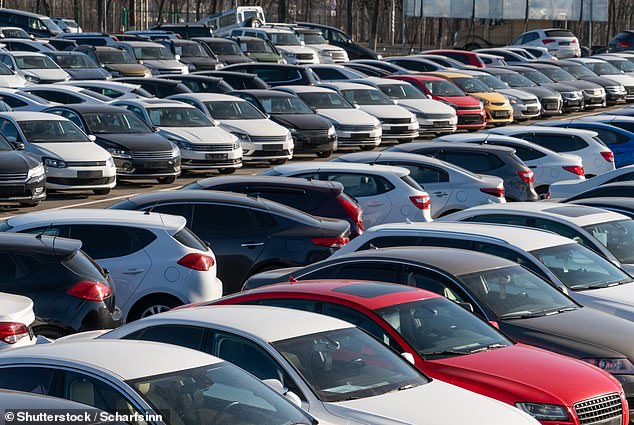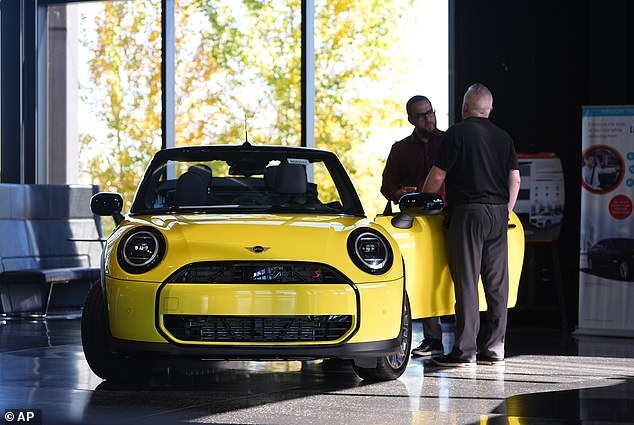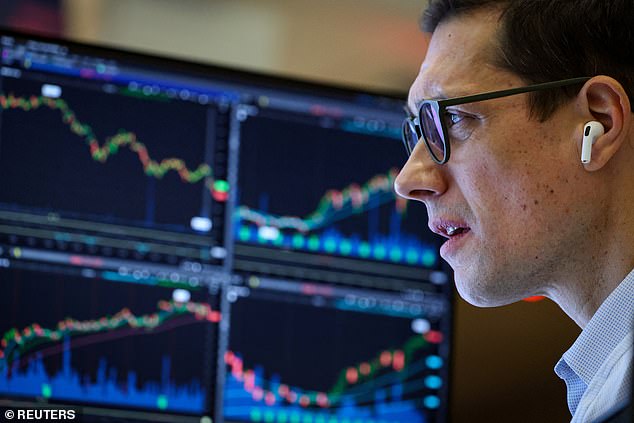Subprime lender PrimaLend Capital Partners has filed for bankruptcy, in another sign that low-income Americans are under strain.
The Plano, Texas-based company provides financing to auto dealerships focused on subprime borrowers – which are those with poor or no credit.
The company filed for bankruptcy after months of negotiations with creditors following missed interest payments on its debt, Bloomberg reported.
It is the latest in a string of similar bankruptcies, and comes amid mounting concerns about Americans falling behind on their car loans.
This consumer stress is sparking fears that trouble may be lurking for the US economy after years of easy credit, echoing the run up to the financial crisis in 2008.
Car repossessions are surging across the US, and millions more are at risk of losing their vehicles as they struggle to keep up with rising payments.
This pressure on consumers means lenders to businesses that finance subprime loans must be extra cautious, Donald Clarke, president of Asset Based Lending Consultants, told the outlet.
‘Pay attention. Don’t fall asleep,’ he said. ‘You need financial statements from your borrowers now, tomorrow, every month. Not in a few months when a whole new slew of defaults could have already hit.’

Subprime auto lender PrimaLend Capital Partners has filed for bankruptcy, in another sign that low-income Americans are under strain
PrimaLend’s filings in a Texas court showed that it listed both assets and liabilities of less than $500 million.
The company stressed that it is not going out of business and that it would continue to fund and service loans to its borrowers.
‘We want to be clear: there is no impact to our dealer-borrowers’ loans or terms. No debt is being called due or accelerated as a result of this process,’ PrimaLend CEO Mark Jensen said. ‘We are pursuing a sale process to maximize value of the business and strengthen our balance sheet.’
It comes after subprime auto lender and dealer Tricolor went bust last month.
Not long after, auto-parts supplier First Brands also filed for bankruptcy amid an accounting scandal that has left lenders scrambling for more than $2 billion in missing funds.
Borrowers at the lower end of the income spectrum tend to default first, and there are growing fears that yet more lenders targeting the same group could also collapse – echoing what happened with subprime home loans in 2008.
The percentage of subprime borrowers – those with poor or no credit – who are at least 60 days late on their car loans was at 6.43 percent in August, according to Fitch Ratings.
This figure has doubled since 2021, and is worse than during the dot-com recession, the Covid-19 pandemic and the financial crisis.

Car repossessions are surging across the US, and millions more are at risk of losing their vehicles as they struggle to keep up with rising payments

Economists are warning that this consumer weakness could be a warning sign about serious cracks in the US economy

PrimaLend CEO Mark Jensen stressed that the company is not going out of business and that it would continue to fund and service loans to its borrowers
Car loans tend to be the final payments that Americans are willing to miss, after credit card or mortgage payments.
This is because cars are so essential for people’s daily lives. They need them to get to work, to take their children to school, or to access groceries.
The average cost of a new car in the US has now eclipsed $50,000 for the first time in history.
This, coupled with high interest rates, has sent auto loan payments soaring and piled increasing pressure on car owners.
Drivers owe $1.66 trillion in car loans – a bigger burden than federal student loan debt or credit cards – which is up 20 percent since 2020.
This weakness in the auto market is a clear indication that low and middle-income families, who are seen as the foundation of the economy, are under increasing financial pressure.
Kevin Armstrong, author of Repo Blood: A Century of Auto Repossession History, told the Guardian that auto loan delinquencies are ‘one of the canaries in the coalmine’ for the broader health of the economy.
He traced the rise in repossessions to the pandemic, when stimulus checks and extra unemployment aid meant that consumers were able to pay for more expensive cars, which they can now no longer afford.
‘When Covid hit, prices went through the roof,’ he told the outlet.
‘I watched people paying outrageous amounts for cars that just weren’t going to hold their value, and the dealers laughing all the way to the bank. They got hosed.’
